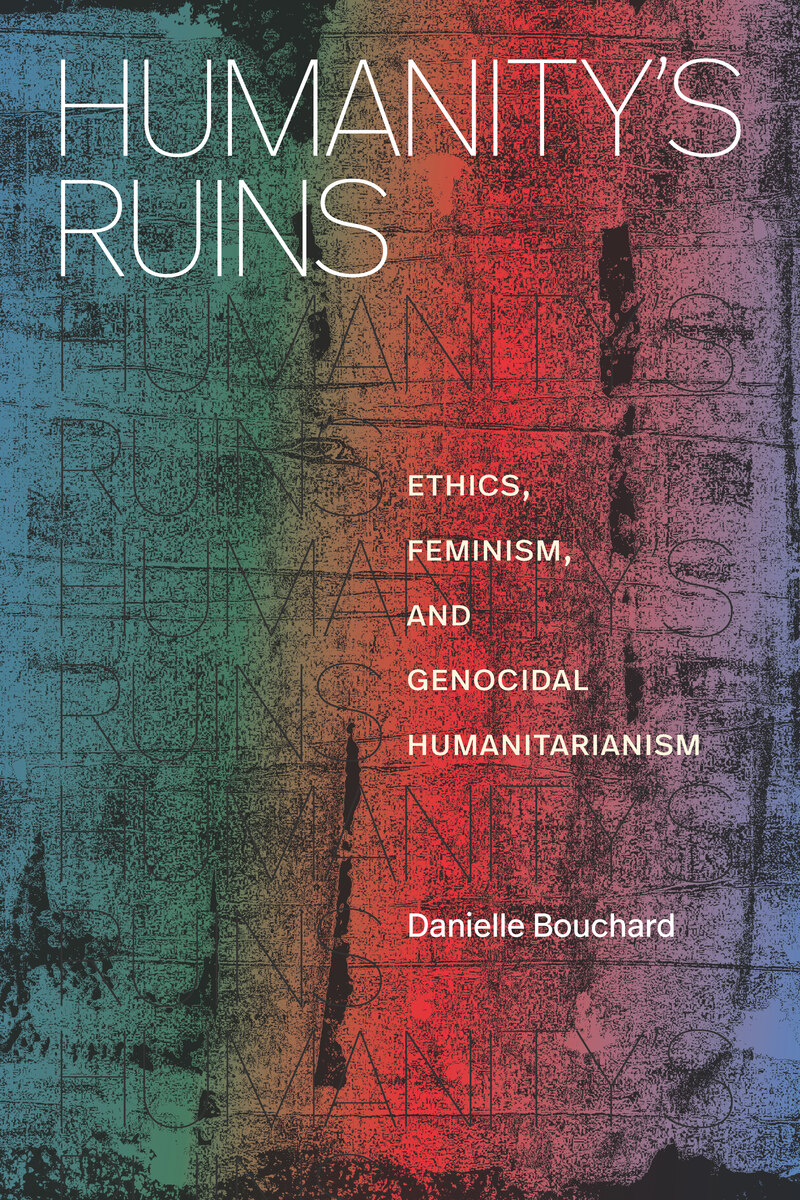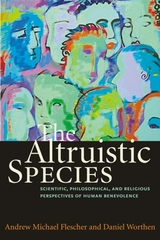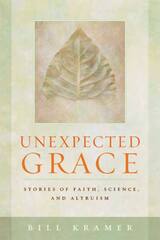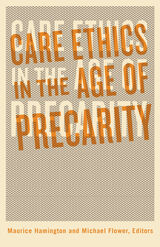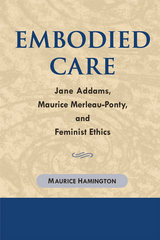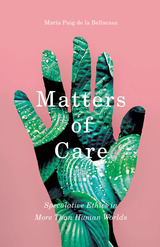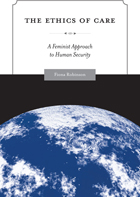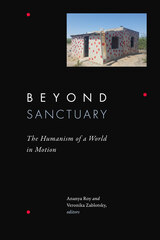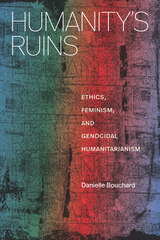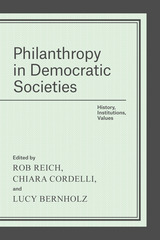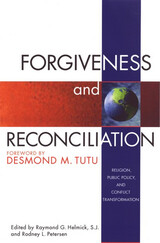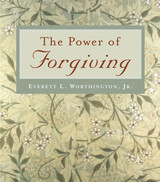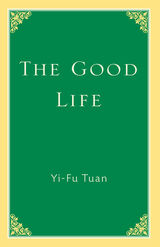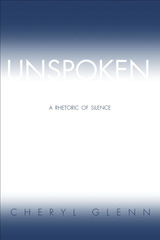Humanity's Ruins: Ethics, Feminism, and Genocidal Humanitarianism
Duke University Press, 2025
Cloth: 978-1-4780-2879-6 | Paper: 978-1-4780-3206-9 | eISBN: 978-1-4780-6099-4 (standard)
Library of Congress Classification BJ1475.3.B683 2025
See other books on: Feminist ethics | Genocide | Humanitarianism | International relations | War and society
See other titles from Duke University Press
Cloth: 978-1-4780-2879-6 | Paper: 978-1-4780-3206-9 | eISBN: 978-1-4780-6099-4 (standard)
Library of Congress Classification BJ1475.3.B683 2025
ABOUT THIS BOOK | AUTHOR BIOGRAPHY | REVIEWS | TOC | REQUEST ACCESSIBLE FILE
ABOUT THIS BOOK
In Humanity’s Ruins, Danielle Bouchard examines how genocidal aspirations animate contemporary Western humanitarian projects and discourses. Drawing on anticolonial and antiracist feminist critique, Bouchard argues that humanitarianism has functioned in the Cold War and post-Cold War eras to perpetuate longer-lived, fundamentally racist conceptualizations of humanity’s defining characteristics. She examines the aesthetics of humanitarian texts, which are filled with figures of the wounded, dead, and disappeared—the atomic bomb victim whose only remainder is a shadow imprinted on concrete, the grievously injured Muslim woman, the vanished members of Amazonian “uncontacted” tribes, the dying African—to elucidate how the appearance of these figures reaffirms a genocidal view of humanity that aligns with the continuation of Western imperial warfare. Humanitarian discourses conceive of humanity as a community which, by definition, is under existential threat from some humans who are explicitly or implicitly understood as needing to be eliminated. Bouchard invokes “humanity’s ruins” to expose the genocidal fantasy of a human world in which such threat has been eliminated in the interest of supposedly ensuring humanity’s survival.
See other books on: Feminist ethics | Genocide | Humanitarianism | International relations | War and society
See other titles from Duke University Press
